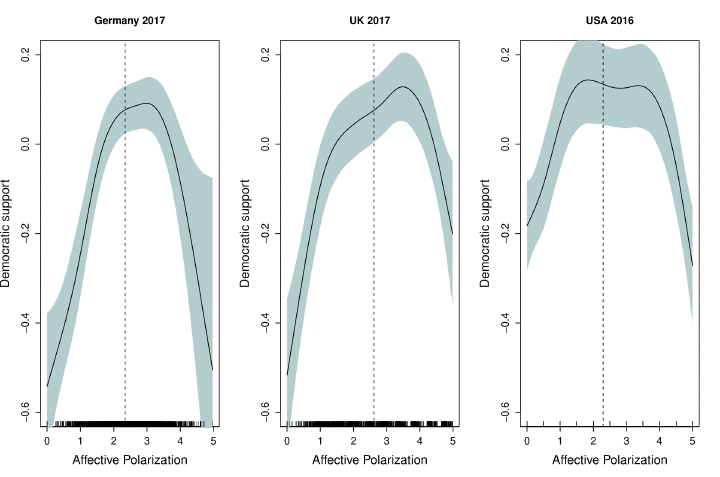Breaking free from linear assumptions: Unravelling the relationship between affective polarization and democratic support
Oct 1, 2024·,·
0 min read
Lisa Janssen
& Emma Turkenburg

Abstract
Scholars increasingly raise concerns about the alleged detrimental impact of affective polarization on citizens’ democratic attitudes. Yet, prior studies on the relationship between affective polarization and democratic support have yielded mixed results: Whereas some scholars report evidence that affective polarization erodes citizens’ support for democracy, others report null-findings. In this research note, we posit that one relevant explanation for these mixed findings is that the relationship between affective polarization and democratic support is not linear, but rather negatively curvilinear (i.e., an inverted U-shape). Though extreme levels of affective polarization may harm citizens’ democratic commitments, a moderate amount of affective polarization can strengthen democratic support by heightening the political stakes and stimulating democratic involvement. Employing Generalized Additive Modelling on data from the CNEP collected in Germany, the UK, and the US, we show strong and robust support for this negatively curvilinear pattern. These findings have important implications for our understanding of the dynamics between affective polarization and democratic support, as well as for the recommended estimation strategies of future studies that aim to explore this relationship.
Type
Publication
European Journal of Political Research